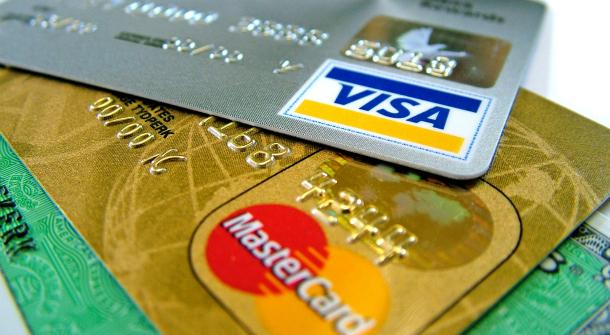A credit score, simply put, is the calculated likelihood of you paying your bills on time. Therefore, the higher the number the better. A credit score is not something that you sign up for, but rather is created and tracked automatically by three ratings agencies.
While your credit score might seem like an irrelevant number today, it will play a major role in how much interest you pay to borrow money for things like a car or a house in just a few short years. A good credit score can qualify you for a lower interest rate when you borrow money, which means potentially paying thousands of dollars less in the future.
To obtain a great credit score, you need a history of responsible money management. One of the most common ways to build a credit history is by using a credit card. If you find yourself regularly using a debit card, consider talking to your bank about setting up a credit card with a low credit limit and no annual fee. Charging a debit card draws money directly from your checking account.
However, by using a credit card, you essentially borrow money from your bank and then, ideally, repay your debt at the end of the month. This difference allows banks and credit agencies to see whether or not you are a reliable person to loan money to over time. By repeatedly borrowing small sums and repaying them on time in full, you can build up a positive history of creditworthiness. Likewise, if you fail to pay your bills or are late on payments, your credit score will be lowered. If you feel ready for the responsibility of a credit card, make sure to do your research before you go to your bank to avoid gimmicks and unreasonably high interest rates.
The golden rule of responsible credit card use is to always pay your bill in full and on time each month. Credit card companies will tempt you by listing a “minimum monthly payment” on your bill. While it might seem like that is all you need to pay that month, don’t fall for it. Card companies make their money from the interest they charge on your remaining balance. Know that if you only make your minimum payment, you will typically end up paying twice the sticker price of each item you buy due to interest fees. Ouch! There are also other hidden costs to carrying credit card debt. For example, late bill payments will bring down your credit score and remain on your record.
One easy way to stay on top of your payments if to set up an alert on your phone reminding you to pay your bill each month. While you will get a paper bill each month, most banks today have online banking and smartphone apps for those who don’t regularly check their mailboxes. You can take advantage of these apps to pay your bill and also keep an eye on your spending relative to your credit limit. Never rely on your bank telling you if you are over or about to go over your limit, as going over may trigger fees and lower your score.
To establish good credit, try charging up a third of your credit limit and then pay it off immediately each month. While it’s certainly okay to spend less than a third, regularly maxing out your credit limit may raise red flags. Another common pitfall is having too many credit cards. While companies like Nordstrom and Target might offer you a discount on your purchase if you sign up for their cards, it isn’t worth it. Those cards’ annual fees typically cancel out the “15 percent savings on your purchase today.” Likewise, earning airline miles might seem appealing, but you generally need to charge about $8,000 annually to your card to earn one ticket every three years, which really isn’t much of a deal for the average college student.
Too many credit cards can also make creditors nervous and may have negative impacts on your credit score. A good rule of thumb is to try for no more than two cards: one for everyday use and possibly one more for emergencies. History is key here, so try to keep open the account with the credit card that you’ve had the longest.
Finally, remember that if you ever have any questions about using your card, don’t be afraid to do some research or ask your bank, as it’s better to be safe than sorry. The bottom line is that a credit card is a very serious financial tool and whether it is harmful or helpful is up to you alone. With careful management of your credit card, you can start to build a positive credit history, which will serve you well in the years to come.
Photo courtesy of Creative Commons





